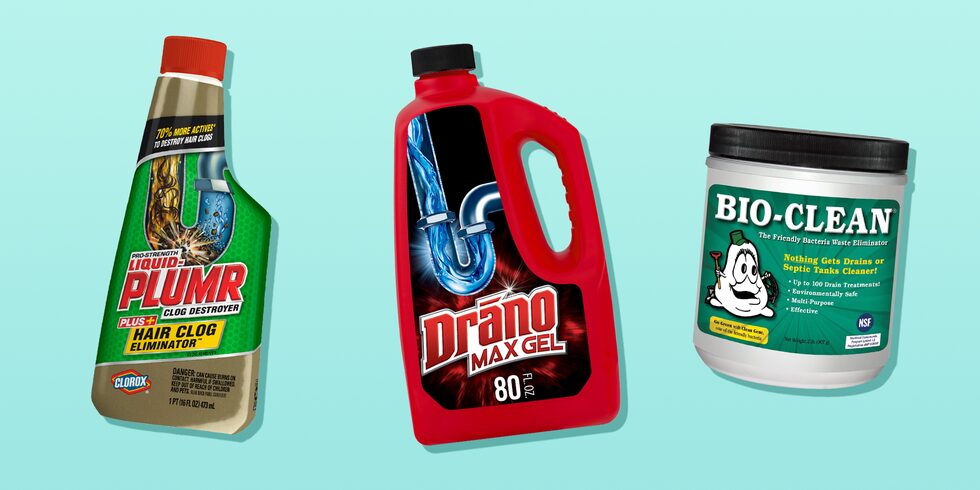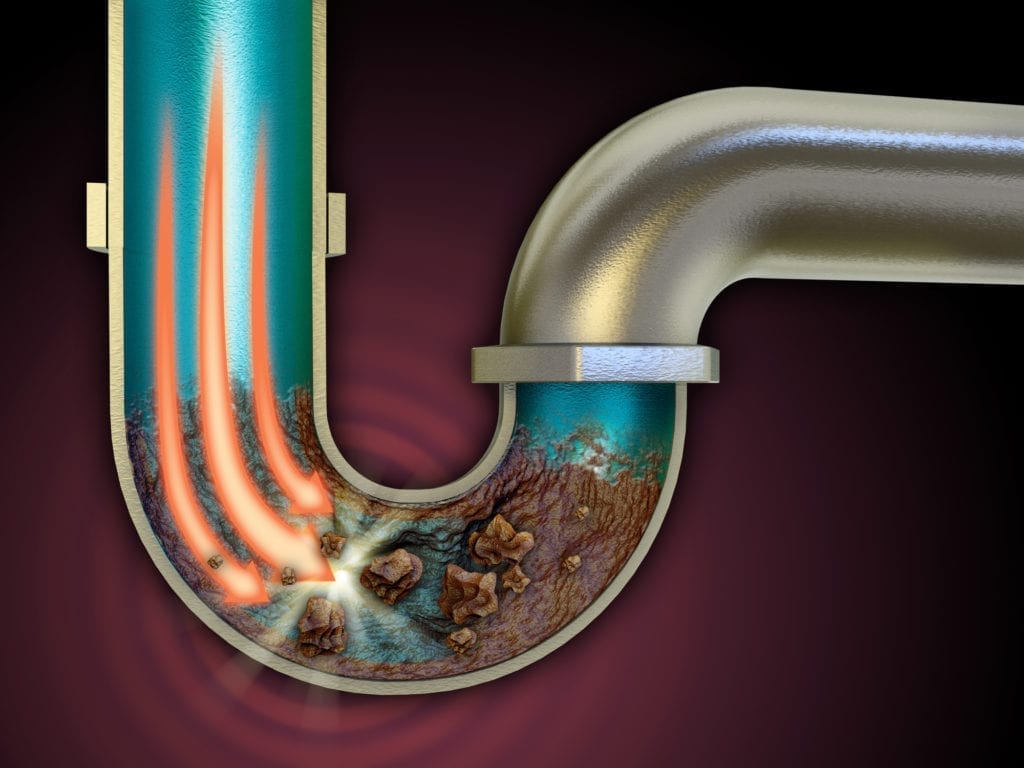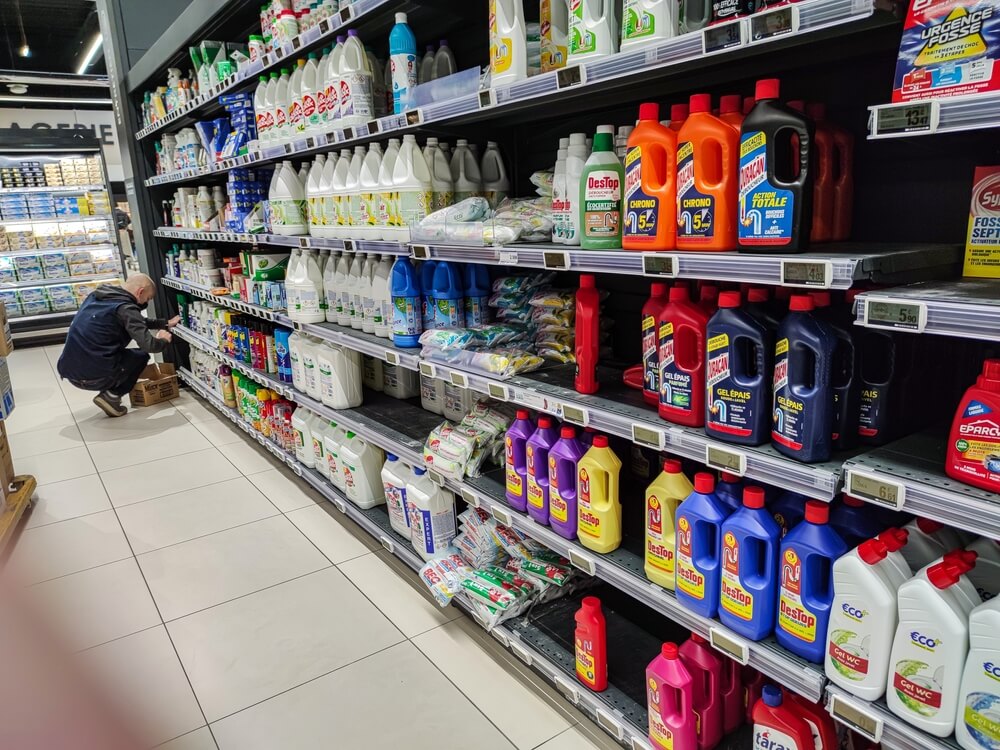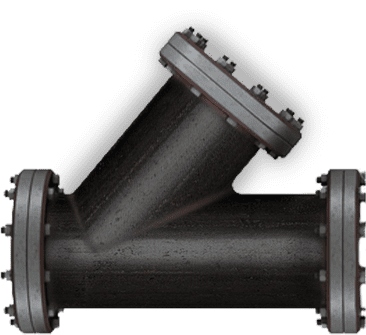It’s About Making The Right Choice Because the Problem Isn’t Financially Burdensome
Just over seven years ago, New York City had to allocate a staggering $18 million in its battle against sewer backups. A whopping 71% could be directly attributed to the insidious culprit known as grease. Meanwhile, in Fort Wayne, Indiana, an annual expenditure of $500,000 is dedicated to tackling this mounting issue. The problem doesn’t end here; it’s a growing menace spreading its roots throughout the United States! Could household drain cleaners help with the problem?
Thankfully, the scenario within the confines of your bathroom or kitchen sink isn’t nearly as financially burdensome or perplexing to resolve. While an array of solutions exists, ranging from the trusty plumber snake to the classic plunger, one common choice prevails – household drain cleaners.
But the real question is, how do these drain cleaners work their magic? Do they harm my drains or fixtures? And is there a more eco-friendly alternative, such as homemade, natural drain cleaners, that you can craft yourself? To embark on a journey to uncover the answers to these intriguing questions and more, delve further into our exploration!

Like Any Other Household Cleaner, “Use As Directed”
No quality branded household drain cleaners will harm your plumbing system if used as directed. Chemical drain cleaners such as Liquid Plumr® and Drano® have been in the marketplace for over 60 years. Can you imagine if these products messed up your plumbing system, they would have been out of business years ago? These products are scientifically tested; if “used as directed,” they will meet the need. The key to any product is “using it as directed,” including any household cleaner. We are a plumbing company that takes a commonsense approach to drain cleaners.
There is no Evidence Cited about Household Drain Cleaners
After doing a Google search for “the science behind chemical drain cleaners damaging pipes.” No scientific evidence was presented in the top ten searches. Every article or blog basically said the same thing without ever citing any facts. However, Liquid Plumr did have a quote regarding their product:
“Yes. Lab tests confirm that all Liquid-Plumr® products are safe for all household plumbing. However, we do not recommend using clog removers in rubber pipes. The products may damage rubber.”
And for those who want to question Drano, they have a 17-page sustainability assessment:
“Drano ENVS 195: Science of Sustainability Class assignment for Sustainability Science, ENVS 195 University of Vermont, taught by Dr. Saleem H. Ali, Fall, 2010”
We are not promoting any household drain cleaners; in fact, we wish they would have never existed. Although, if a customer wants to use a branded household drain cleaner for their slow-moving drain–––great! They can save a few bucks on their drain cleaning job by doing it themselves. It’s as if chemical drain cleaners threaten these plumbing companies who speak out against them without any supporting facts.
What We Promote Regarding Household Drain Cleaners
- We do not recommend drain cleaners on clogged toilets. Liquid Plums® states, “We do not recommend using this clog remover in toilets.”
- We recommend a branded drain cleaner for minor clogs and slow-moving drains, never on drains requiring more than a plunger or small household snake.
- It’s best to provide bi-weekly maintenance to prevent clogs altogether.
- We promote following the prescribed directions for any household drain cleaner or product.
- Safety is always first, so use gloves and goggles when using drain cleaners.
- We do not recommend an acidic drain cleaner under any conditions.
- Look at your local home center for the most recommended drain cleaner.
- Use homemade drain cleaners such as baking soda and vinegar for maintenance or slow-moving drains only.
- Know when to call in reinforcements.
Let’s Discover What Causes Clogged Drains
Clogged drains can occur for various reasons, and the causes can differ depending on the type of drain in question. In sinks, for example, common causes of clogs include the accumulation of hair, soap scum, food particles, and grease over time. In bathroom drains, hair, and soap residue are frequent culprits, while kitchen sinks often get clogged due to the buildup of food scraps, grease, and oil. Understanding the specific materials that cause blockages in each type of drain is essential in selecting the appropriate drain cleaner or preventive measures to address the issue effectively and prevent unpleasant drain odors.

Kitchen Sink Drains
The kitchen sink drain is typically designed larger than its bathroom counterpart, primarily to accommodate the higher volume of solid or semi-solid waste that it must handle. Some common substances that can contribute to clogs in kitchen sink drains include:
- Grease and Cooking Oil: These substances can solidify and accumulate in the drain over time.
- Food Scraps: Small bits of food, such as rice, pasta, and vegetable peels, can build up and obstruct the drain.
- Soap Residue: Soap scum can stick to the walls of the drain pipe and trap other debris.
- Coffee Grounds: These fine particles can easily clump together and create blockages.
- Fruit and Vegetable Peelings: Tough peels can become wedged in the drain, impeding water flow.
Frequently, the accumulation of grease in a kitchen sink gradually traps other objects. As this blockage continues to develop, it occupies an increasing amount of space within the pipe, ultimately leading to a point where water can no longer pass through.
Bathroom Sinks Encompass a Range of Products
In your bathroom, whether it’s the sink, shower, or bathtub drains, clogs often result from the accumulation of substances that come into contact with our bodies. These can encompass a range of materials, including:
- Hair
- Skin cells
- Dirt or bodily grease
- Nail clippings
- Phlegm
- Oils from hygiene products
- Soap
- Toothpaste
- Shaving Cream and more
Just like in kitchen sinks, the gradual buildup of grease and oil plays a crucial role in accumulating foreign objects within your drain. Over time, these substances collect and combine with other materials, ultimately resulting in a blockage that obstructs water flow.
Slow-Moving Bathroom Drains are Perfect for Branded Gel-Type Household Drain Cleaners
Bathroom clogs and slow-moving drains are common and derive from human and bathroom products. Once they’ve attached to the walls of your bathroom drain, hair begins to gather. Before long, a clog forms, and your drains start moving slowly. The clog becomes a growing bacteria common in most bathroom showers and sinks, often referred to as black slime. This type of clogged drain is perfect for a gel-type chemical drain cleaner. Additionally, there are other drain cleaners in the marketplace providing a more organic approach to drain cleaning. Homeowners, save yourself a few bucks and clear your slow-moving drain yourself.
For high-usage bathroom drains, pour a kettle of hot water down the drain each week to prevent black slime from growing. A mix of baking soda and vinegar is also a great way to provide maintenance to a high-traffic bathroom. However, while many websites tout the idea of clearing a drain using a baking soda and vinegar mix–––don’t waste your time and energy. Use it as maintenance and not for clearing a drain altogether.
Now Let’s Get to the Nitty Gritty on How Household Drain Cleaners Work
The process of unclogging a drain relies on a chemical reaction, and various brands of chemical drain cleaners usually fit into one of three reaction categories:
- Acids
- Caustics
- Oxidizers
Each reaction type operates uniquely, making them more effective for specific types of blockages. For instance, acidic drain cleaners are excellent at dissolving organic matter like hair and soap scum, while caustic cleaners are better at breaking down grease and food particles. Oxidizers, on the other hand, work by releasing oxygen, making them suitable for clearing stubborn blockages. By gaining insights into the science behind these cleaners and their strengths, you can make an informed choice and select the most appropriate drain cleaner for your home plumbing needs.
Acidic Drain Cleaners: We Do Not Recommend it for Residential Use
Locating acidic drain cleaners in your local store can be quite uncommon. This is because they typically contain highly concentrated hydrochloric or sulfuric acid, both of which pose severe risks, such as causing skin burns, eye damage, and toxicity if inhaled.
These cleaners operate through a chemical reaction known as acid hydrolysis, where the acid interacts with water. This interaction results in the addition of hydronium ions from the cleaner solution to the water’s chemical structure, generating heat. This elevated temperature effectively dissolves the drain’s obstructing materials, encompassing grease, hair, and food residues.
Oxidizing Household Drain Cleaners are Favored
Oxidizing drain cleaners contain substances like nitrates, peroxides, or sodium hypochlorite (commonly known as bleach). These substances initiate a reaction with the organic materials obstructing the drain by introducing electrons into their chemical structure.
This reaction not only generates heat but also produces gas, effectively breaking down the organic matter. Furthermore, it adds mass to the remaining components, causing them to shift within the pipes and facilitating their removal through the flow of water.
The effectiveness of the reaction depends on several factors, including the concentration of the oxidizing agent in the cleaner, the duration of its application, and the materials it interacts with within the drain. For instance, standard bleach typically contains around 5.25% sodium hypochlorite, making it a relatively mild solution.
One of the reasons oxidizing drain cleaners are favored is their safety when used correctly. The density of the liquid allows it to sink in water, ensuring that even in cases of complete blockage, it can still reach the affected area and initiate the reaction.
Caustic Drain Cleaners Have a Small Amount of Caustic Substance
Many household drain cleaners are available in a solid form, and they often incorporate sodium hydroxide, commonly known as lye, as their active ingredient, which operates through a dual-action mechanism.
Firstly, when these substances react with water and aluminum, they produce hydrogen gas. Secondly, they donate electrons to the obstructing materials due to their basic nature. This electron transfer is particularly noticeable when dealing with grease, which transforms into a soap-like substance, making it more amenable to dissolution.
These caustic agents are denser than water, enabling them to effectively sink toward the blockage. In concentrated forms, they can create reactions as potent as strong acids. However, most household drain cleaner brands incorporate only small amounts of these caustic substances to prioritize safety during use, mitigating potential risks associated with their application.
Enzyme Drain Cleaner Can Prevent Further Blockages
Notably, not all household drain cleaners operate via chemical reactions. In contrast to opting for a chemical cleaner to tackle a blockage, an enzyme drain cleaner offers a safer and less detrimental alternative for preserving the unobstructed flow of water through your drains.
But how does a drain cleaner work without relying on a chemical reaction? It operates through a synergistic combination of enzymes and bacteria cultures. These microscopic agents feed on the organic matter present within the drain, effectively breaking down substances such as mold buildup, food particles, and hair. As the bacteria digest these materials, they break them down and multiply and propagate throughout the drain system, continuously cleaning and preventing further blockages as they progress. This biological approach offers a gentle yet effective means of maintaining clear drains.
Homemade Cleaner
Drain blockages typically develop gradually over time, often escaping notice until they significantly impede water flow. The blockage is usually already in place when you become aware of slow drainage. To ensure the continued functionality of your drains, it’s crucial to engage in regular maintenance by removing accumulated grease, hair, food residues, and general sludge.
You can opt for a natural homemade solution if you prefer an economical and eco-friendly approach to drain cleaning over expensive chemical or enzyme cleaners. This baking soda and vinegar method of cleaning drains is common throughout the internet. It is excellent for drain maintenance or drains that are just starting to move slowly. However, removing a clog using this method will be quite a chore.
All you need are two readily available ingredients:
- ½ cup of baking soda
- 1 cup of vinegar
Cost-Effective and Environmentally Friendly
Simply pour the baking soda down the drain, wait a few seconds, and then add the vinegar. If you notice any remaining baking soda chunks at the top of the drain, supplement it with more vinegar. The ensuing reaction generates bubbles and air that travel down the drain, effectively weakening and dislodging grease and trapped materials. Allow the solution to sit for about 10 minutes, then run hot water for a few minutes to thoroughly wash away the debris, leaving your drain cleaner and more efficient. This DIY method provides a cost-effective and environmentally friendly way to maintain your drains. Repeat if you did not get the results you sought the first time.
Let’s Clean Some Drains
At Big B’s Plumbing, we understand how household drain cleaners work, which is essential for homeowners to maintain their plumbing systems efficiently. We’ve explored the diverse mechanisms behind drain cleaners, from chemical reactions to enzymatic breakdowns and even natural DIY alternatives.
Armed with this knowledge, you can make informed choices to keep your drains free from stubborn blockages. Whether you prefer the convenience of commercial cleaners or the eco-friendly approach of homemade solutions, maintaining clear drains is vital to the smooth operation of your plumbing. At Big B’s Plumbing, we’re here to assist you with any plumbing needs, ensuring your drains remain free-flowing and trouble-free. So, the choice is yours, but we’re ready to jump into action should your drains require major clearing.














